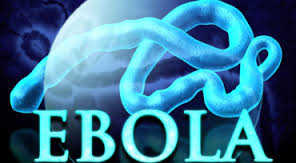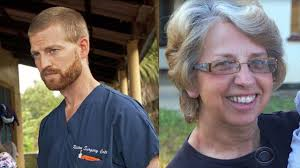A Liberian doctor who received one of the last known doses of an experimental Ebola drug has died, officials said Monday. Separately, Canada said it has yet to send out an untested vaccine that the government is donating.
Ebola has left more than 1,400 people dead across West Africa, underscoring the urgency for developing potential ways to stop and treat the disease. However, health experts warn these drugs and vaccines have not undergone the rigorous testing that usually takes place before they are used.
The experimental vaccines are at still at a Canadian laboratory, said Patrick Gaebel, spokesman for the Public Health Agency of Canada, who declined to speculate how many weeks it could be before those are given to volunteers.
‘‘We are now working with the (World Health Organization) to address complex regulatory, logistical and ethical issues so that the vaccine can be safely and ethically deployed as rapidly as possible,’’ Gaebel said.
Earlier this month, Canada said it would donate 800 to 1,000 doses of an Ebola vaccine that it developed. Likely candidates include health care workers treating Ebola patients.
The experimental drug known as ZMapp has been tried in only six people. Health experts caution that since ZMapp was never tested in humans, it is unclear whether it works. The small supply is now said to be exhausted and it is expected to be months before more can be produced.
Dr. Abraham Borbor, the deputy chief medical doctor at Liberia’s largest hospital, had received ZMapp, along with two other Liberians. He ‘‘was showing signs of improvement but yesterday he took a turn for the worse,’’ and died Sunday, Information Minister Lewis Brown told The Associated Press.
There was no update provided Monday on the other two Liberians who received the drug.
Earlier, it had been given to two Americans aid workers and a Spanish missionary priest, who died after he left Liberia. After receiving rigorous medical care in the U.S., the Americans survived the virus that has killed about half of its victims.
Ebola can cause a grisly death with bleeding from the eyes, mouth and ears. The virus can only be transmitted through direct contact with the bodily fluids of the sick or from touching victims’ bodies, leaving doctors and other health care workers most vulnerable to contracting it.
International relief efforts have included shipments of gloves, gowns, face masks and other protective equipment, although it’s not clear how many have reached health workers struggling to contain the epidemic in West Africa, where even such basics as sterile fluids can be in short supply.
But just getting enough gear isn’t the whole story: Health workers can infect themselves while taking off contaminated equipment if they don’t do it properly, a trio of infectious disease experts wrote Monday in Annals of Internal Medicine.
‘‘The physical exhaustion and emotional fatigue that come with caring for patients infected with Ebola may further increase the chance of an inadvertent exposure to bodily fluids on the outside of the’’ personal protective equipment, wrote Dr. William A. Fisher II of the University of North Carolina, Chapel Hill, along with Drs. Trish Perl and Noreen Hynes of Johns Hopkins University.
‘‘In addition, the impulse to wipe away sweat in the ever-present hot, humid environment’’ after taking off some gear, and before washing up, could be enough, they added.
Meanwhile, the family of 29-year-old William Pooley, the first British citizen confirmed to be infected with Ebola, said he is receiving excellent care at an isolation ward in London’s Royal Free Hospital after being evacuated from the capital of Sierra Leone.
‘‘We could not ask for him to be in a better place,’’ they said in a statement.
Pooley, a volunteer nurse, was flown back to Britain from Sierra Leone where he was working at an Ebola treatment center.
The WHO is also in the process of trying to evacuate a Senegalese doctor who contracted Ebola while working in Sierra Leone, said WHO Assistant Director General, Dr. Keiji Fukada on Monday.
The U.N. on Monday also spoke out against the limitations placed on flights into and out of the affected countries, saying they are slowing aid organizations’ work in sending personnel and equipment and contributing to the countries’ ‘‘economic and diplomatic isolation.’’
‘‘We shouldn’t do anything that stokes fear and stigmatization,’’ Stephane Dujarric, spokesman for the U.N. secretary-general, told reporters.
On Monday, Japan also said it is ready to provide a newly developed anti-influenza drug as a possible treatment Ebola. The drug, with the brand name Avigan, was developed by Fujifilm subsidiary Toyama Chemical Co. to treat new and re-emerging influenza viruses, and has not been proven to be effective against Ebola.
Source: Associated Press



